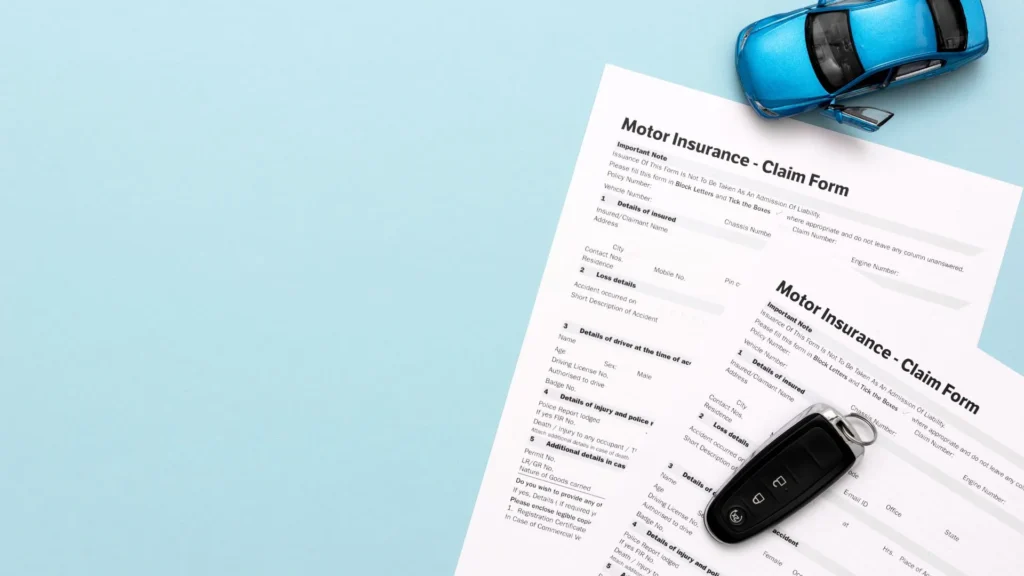Even if it’s a minor accident involving your car, it can be disturbing and worrisome. If you submit a claim right after a vehicle accident, it is always possible that your insurance company will refuse your claim. Although hearing that your claim has been refused is upsetting, you can still appeal your insurance company’s decision. Before you begin the appeals procedure, you should understand the rationale for the denial to plan your next steps.
Here is a detailed outline of what to do if your car insurance claim is denied. The guide also provides possible reasons for the insurance provider to refuse your claim and possible alternatives if you wish to appeal the decision. If you got your insurance claim denied, opt for auto insurance with Beem that provides maximum coverage for damage to your vehicle, other cars or property, and injuries to yourself or others.
What is a Claim Denial Letter?
An insurance consultant is responsible for documenting the specifics of the collision when you claim with your motor insurance company. After reviewing the information supplied, the adjuster will decide whether the automobile insurance claim will be refused or approved. If the accident is determined not to be covered by your insurance policy, the company will give you a formal letter explaining why. A rejected vehicle insurance claim only sometimes indicates the claims procedure is over. You can appeal the decision against your insurer’s claim denial.
Why Did Your Car Insurance Company Deny Your Claim?
Several factors might lead to your auto insurance claim being refused, depending on the circumstances. Police records, eyewitness accounts, recreating an accident scene, and other factors can impact the result of a vehicle insurance claim. Sometimes, a claim may be refused due to bad faith or misrepresenting the facts. Thus it is critical to be truthful and exact when filing your claim to your vehicle insurance carrier.
If you receive a refusal letter, carefully read it since it will usually provide supporting information for the decision. The following are some of the most typical grounds for a claim to be denied:
Expired Insurance Coverage
Your insurer may deny your claim if you don’t have an active policy. It can be possible if you failed to make payment on time. Therefore, paying your auto and home insurance on time is the best method to ensure coverage when needed. Avoiding a coverage gap is critical, whether you pay for your insurance in full or utilize auto-pay to avoid missing payments. A lapse in coverage can lead to fines and other penalties. It can also result in the suspension of your license and car registration, besides the possibility of your claim being refused.
Exclusions From Policies
When purchasing automobile insurance, please pay close attention to the coverages you select and the financial protection they give. For example, you may own an older vehicle and believe that comprehensive and collision coverage are unnecessary. However, if your car is stolen or you have an accident, the insurance provider can only cover you if you have adequate coverage. The adjuster can access your policy’s inclusions when examining your claim. Filing a claim for damage that you do not have coverage for will result in your insurer sending you a claims rejection letter.
Inadequate Coverage
It might be tempting to pick state minimum liability limits to keep vehicle insurance costs low. While you may save money on insurance premiums, if you are involved in an accident that causes several injuries or hits an expensive automobile or structure, you may exhaust your liability limits and face a terrible financial loss. Assume you have $25,000 in property damage liability coverage and a car worth $40,000. The motor insurance company may pay up to the permitted $25,000. However, they can refuse the remaining $15,000, exposing you to a lawsuit for the difference.
An Uninsured Driver Was Involved in an Accident
While most states need liability insurance, not all require uninsured motorist coverage. Finding adequate insurance data may be difficult or impossible if someone causes a collision with you, offers fake insurance information, or commits a hit-and-run. Your claim may only be accepted if you have uninsured or underinsured motorist coverage.
Defendant’s Insurance Company Rejected Your Claim
There might be various reasons why another motorist is regarded as at-fault and their insurance company refuses the claim. Some instances include giving inaccurate insurance information or needing more adequate or appropriate coverage. Furthermore, if an accident happens in a no-fault state, you are liable for paying your medical expenditures.

What to Do if Your Car Insurance Claim Is Denied?
You can appeal the decision if you believe there was an error in the vehicle insurance company’s claim denial. Most insurance companies have a procedure allowing you to appeal a refused claim. The following are some measures to consider when appealing a car insurance claim decision:
Gather Evidence
Review any documents supplied by the insurance company and collect the proof required to file an appeal. Police records, eyewitness information, images, medical reports, and other supporting evidence may be included. Make copies of everything for the insurance company so that you may keep the originals.
Create an Appeal Letter
Explain why you disagree with the insurance company’s decision in this letter. Explain why each piece of information in step one, such as any police reports, was submitted. Give as much information as possible, citing policy information and the claims denial letter as appropriate.
Consider Employing an Attorney
If you need clarification about following these actions or want the advice of an expert, it may be a good idea to contact an attorney. They can examine the case and accompanying papers to create a demand letter ordering the insurance company to reply and defend its claim denial. While it may cost you money upfront, reversing the claim denial may be a reasonable expense if you believe your insurer made the incorrect decision.
The first step in assessing a denied vehicle insurance claim’s legitimacy is understanding the rejection letter and why your insurance company opted out. Most vehicle claim denials are genuine. However, some are not. In this instance, appealing the insurance company’s judgment can help in the decision being changed or an offer to compensate for the losses.
also know about: car insurance claim

Conclusion
So, what to do if your car insurance claim is denied? Dealing with a denied vehicle insurance claim can be difficult. However, the appeals procedure provides an opportunity to seek a fair outcome. Understanding the basis for the rejection, acquiring relevant information, and being familiar with your policy are all essential elements in crafting a solid appeal. Consultation with your insurance carrier, getting legal assistance if necessary, and investigating mediation or arbitration alternatives can help to strengthen your appeal.
Being proactive and persistent can boost your chances of reversing the decision and receiving the insurance coverage you are entitled to. Opt for Beem’s online comparison tool to get the best policy for your needs. Consider the coverage options, deductibles, and premiums offered by different insurance companies with Beem and pick the best one for your needs. Don’t forget, patience and dedication are essential during appeals since a resolution may take time.





























